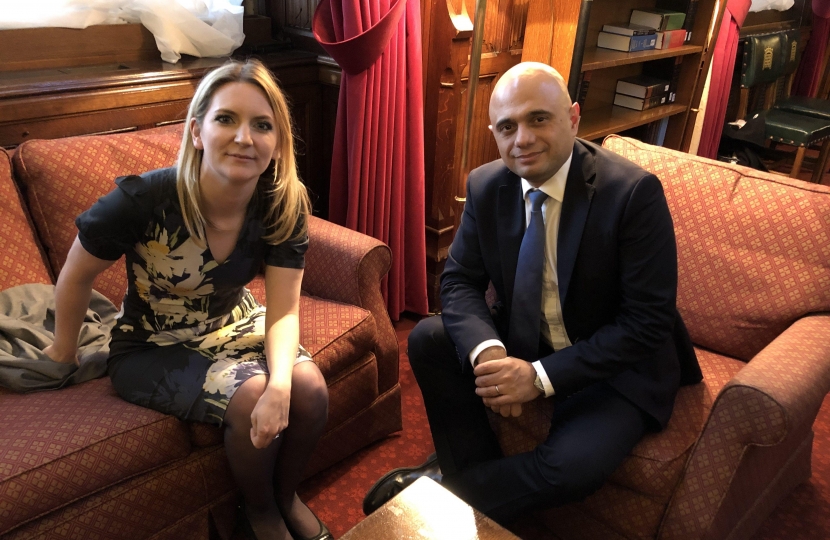
I know that a number of constituents are concerned about pressures on the police following recent street crime in our constituency. I wanted to make you aware of some of the ways in which I am acting upon those concerns in my work as a parliamentarian.
Responsibility for the management of the Metropolitan Police and its day-to-day operation comes within Mayor of London, Sadiq Khan’s remit. We have a London Assembly Member, Keith Prince AM ([email protected]), who represents us to the Mayor and holds him to account on policing. The Independent Police Complaints Commission can also be contacted if you are unhappy with the police's handling of a particular case. Unfortunately I have no power to intervene in specific police cases.
The Met receives funding from both the Home Office and from the mayoral precept (which comes out of our council tax). I therefore have a role in pushing for the right central government funding and ensuring police have the right powers to crack down on crime. I also try to use my office to bring different levels of government together (council, GLA, central government) and to link constituents to local police teams and our Borough Commander, Jason Gwillim.
Meeting with Home Secretary, Sajid Javid, and Police Minister, Nick Hurd
Last week I had a meeting with the Home Secretary at which I offered my wholehearted support to his efforts to increase funding for police in the run-up to the provisional police funding settlement in December. This follows a meeting with Police Minister, Nick Hurd, and my contribution to the Budget debates at which I raised the issue of demand pressures in outer London boroughs.
The Mayor has been given more flexibility to increase the precept plus a reallocation of business rates. An extra £100 million will be going into the Met this year, supplemented by £160m extra for counter-terrorism policing. Met Police Commissioner, Cressida Dick, is actively recruiting 2500 more officers. This includes a push for more detectives.
I raised with the Home Secretary concerns about the use or threat of knives in recent muggings, and we discussed how to give police any tools they need in the Offensive Weapons Bill. Further to concerns raised by constituents about the banning of 50 calibre rifles, a compromise has been reached which will allow such rifles to be used under stricter conditions.
We also discussed the forthcoming Immigration Bill which sets out post-Brexit policy. I asked whether it would become easier to deport non-UK criminals, and was reassured on some of the Bill’s potential provisions such as the requirement to declare criminal convictions in the EU nationals registration system.
Separately, I have had a meeting with the Security Minister to talk about progress to stem the spread of extremism in Eastern London and in prisons.
Surgeries
I try to have a police officer and local councillor at each of my rotating constituency surgeries so that residents have the chance to raise any crime concerns, and last week we focused on Upminster and the Station Road and Upminster Park area. Inspector Mangan and Sgt Bargus are looking at increasing high visibility patrols, particularly in the after-school period, alongside work with the British Transport Police to deter the use of public transport to travel to our constituency and commit crime.
This follows a meeting I held earlier in the year between Upminster residents and local police teams, as well as Keith Prince AM's recent policing meeting in Harold Hill.
I have asked for better communication between the local police and my office and we are now included on a regular update of any crimes reported in the borough.
Cross-Party Work
I had a meeting last week with one of our local councillors and neighbouring MP, Jon Cruddas, to discuss crime in the Elm Park area, particularly involving young people, and to see what we can do cross-party. The councillor concerned runs the Street Watch programme which tries to provide a visible neighbourhood security presence, and she is also a designated adult for those young people under eighteen who are taken into custody. She wanted to share with us her observations from the latter role, and we spoke at length about the potential causes and solutions to street crime by young people, specifically around Youth Offending Team (YOT) referrals.
Concerns have been expressed about the correlation between school exclusions and youth crime. I have raised this as an issue in previous parliamentary speeches and also in a private meeting with the Education Secretary. In the latter, I shared an idea that had been put to me by a secondary school teacher about introducing core schools to sit between mainstream school and pupil referral units.
Council
I saw the Leader of the Council and the Chief Executive last week where we discussed youth crime in Havering. The Chief Executive advised that the council is already doing some work on youth violence, which it hopes to present to executive members before the end of the year and I have asked to be updated on this work. It is my hope that this may form the basis of a broader meeting with other stakeholder organisations in future.
Representations to the Mayor
I raised concerns about the responsiveness of local police after the triborough pilot merged our borough’s command with that of two neighbouring boroughs, and I also assisted the campaign run by my local Conservative Association to keep open Hornchurch Police Station after it was earmarked for closure by the Mayor of London. Havering Council has now set out its aim to purchase the station and lease space back to the Met in order to secure a police presence across the borough, and the proposal will be put to full council soon.
I continue to press for more resource for outer London boroughs, and will be writing to the Mayor about recent street crime incidents in our constituency. Keith Prince AM has recently met the Deputy Mayor for Policing and talked about the need for more schools officers and issues in Harold Wood.

